Councillor Sri organised a snap protest last Wednesday in the Brisbane CBD, essentially defending the right to protest. Brisbane City Council is trying to expand laws covering the right to peaceful assembly - rights that have been hard won in Queensland, with its history of authoritarian governance and heavy-handed policing.
Students from the University of Queensland march for Civil Liberties on 8th September 1967.
In the past, traffic disruptions were often cited as a justification for withholding permission for public protests. Brisbane City Council attempted to resurrect this tactic in their challenge to Councillor Sri’s protest, although the case was thrown out by the magistrate who pointed out that free-flowing traffic is not a core constituent of democracy.
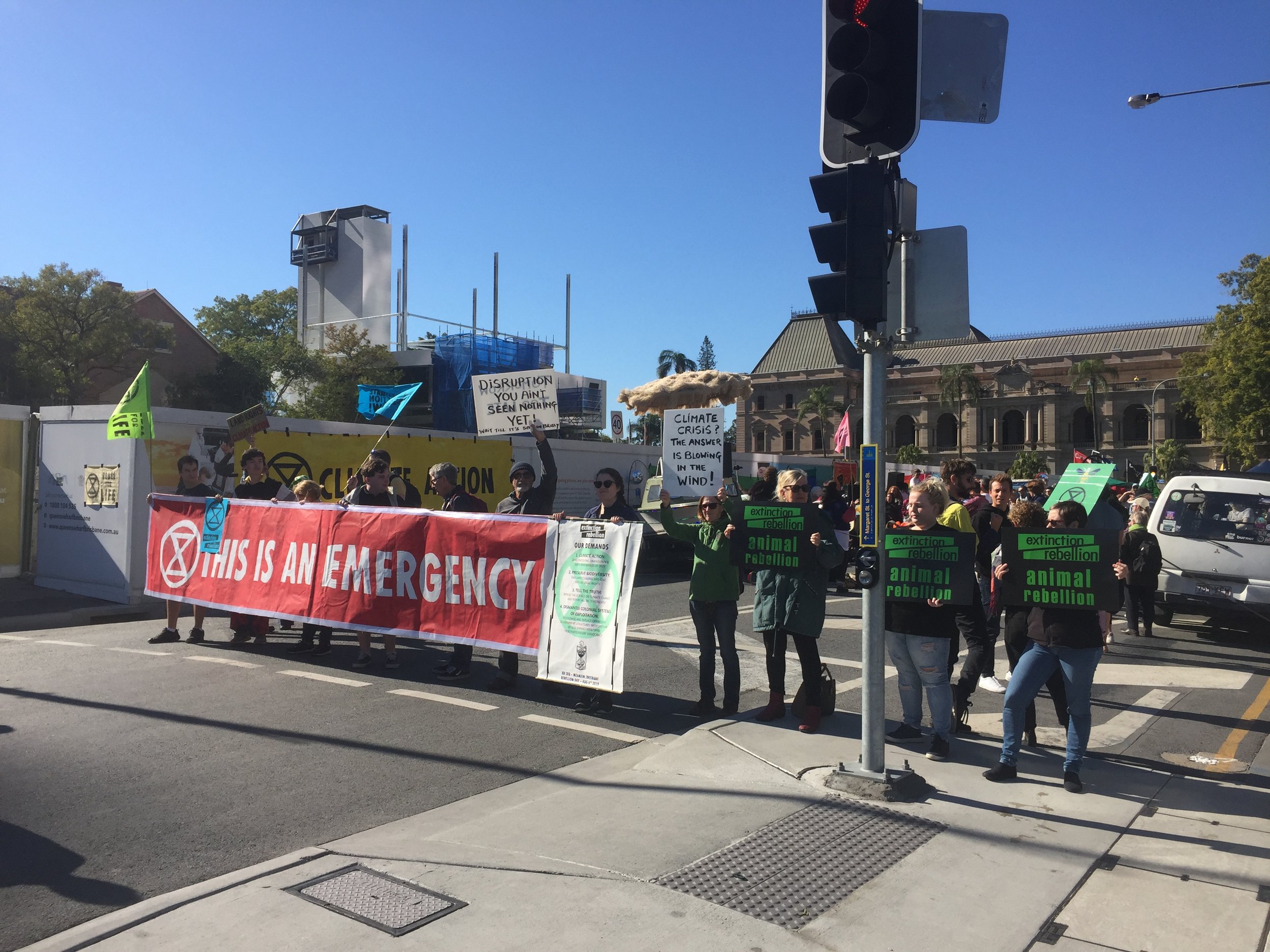
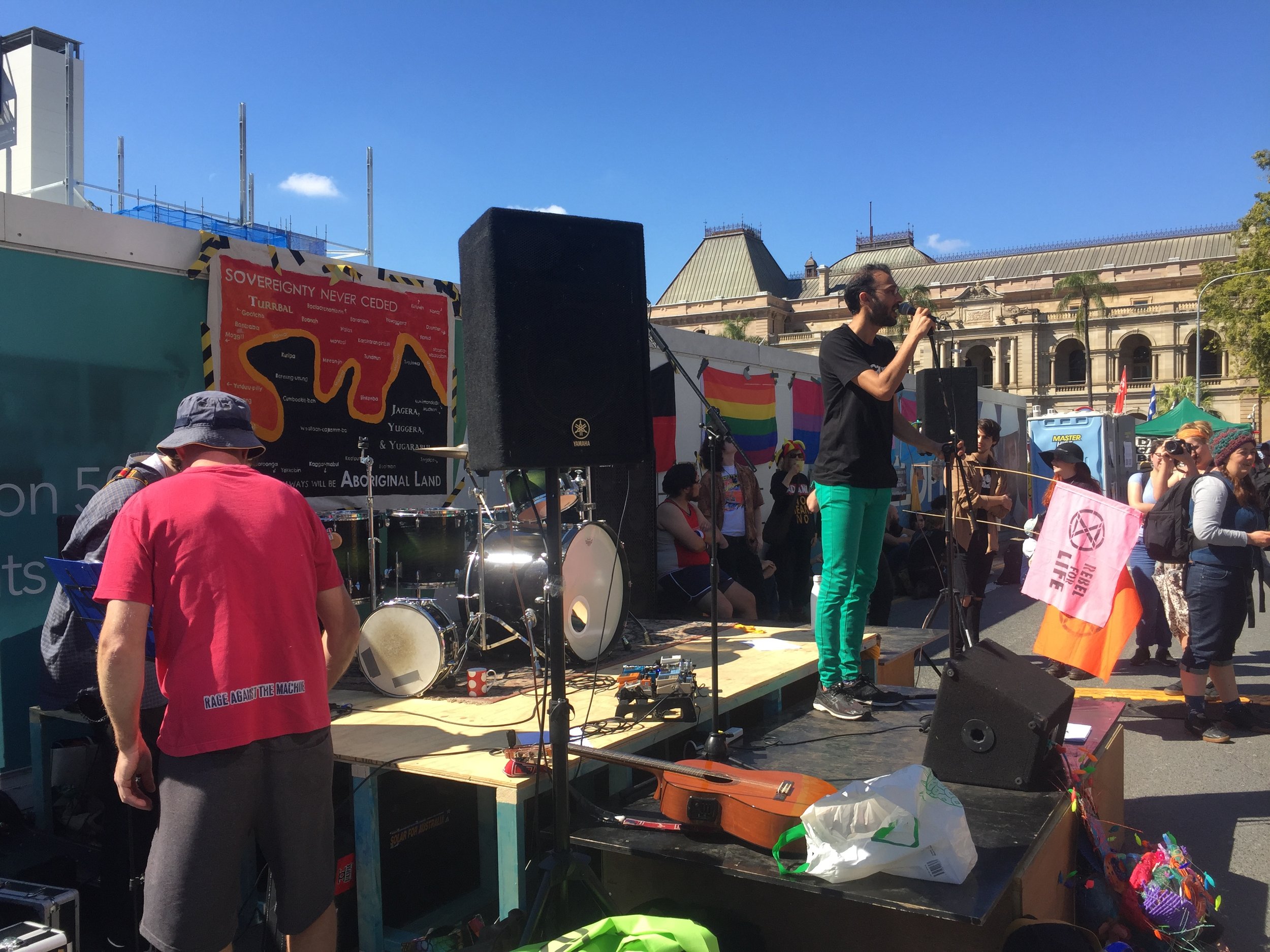
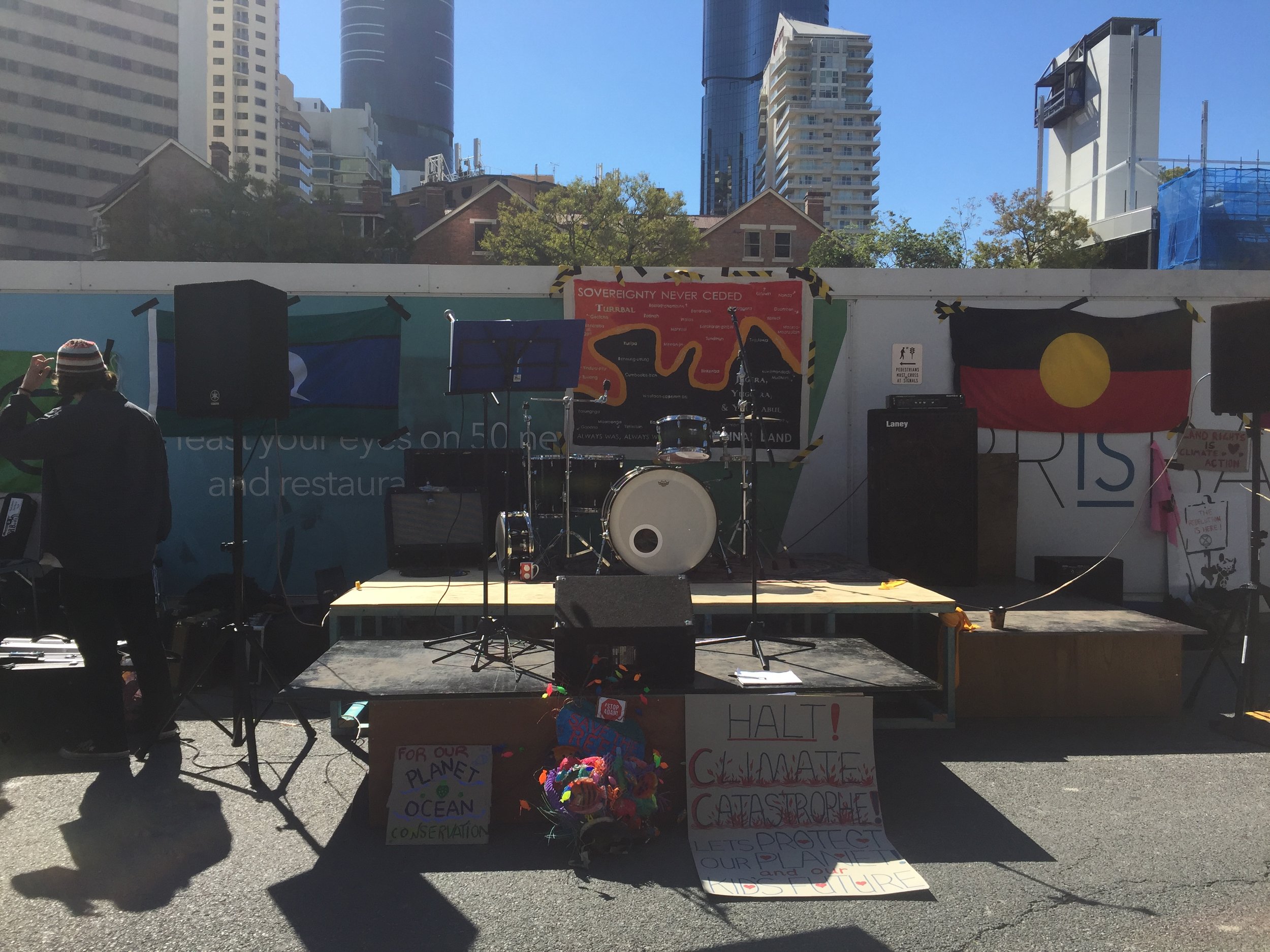
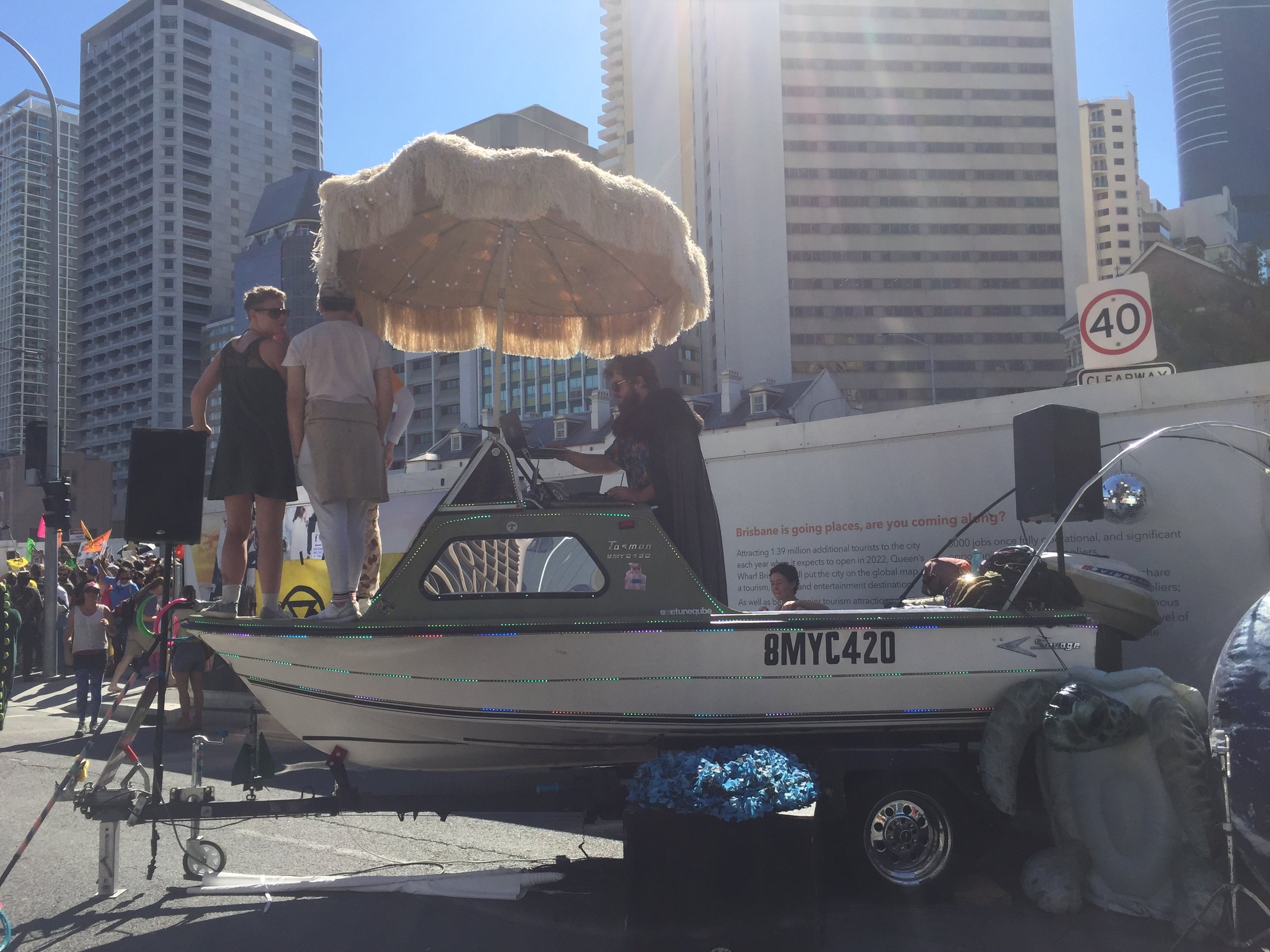
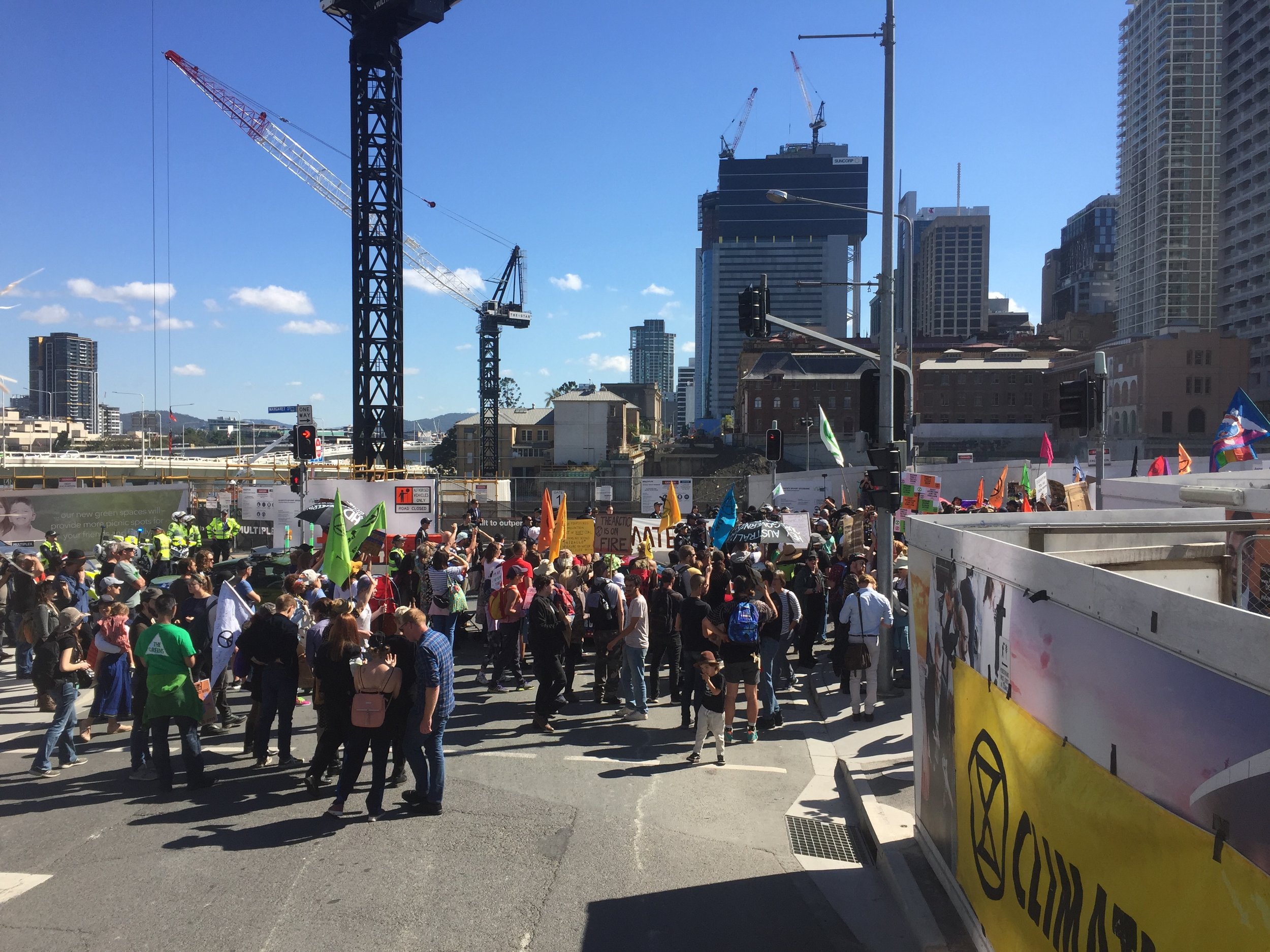
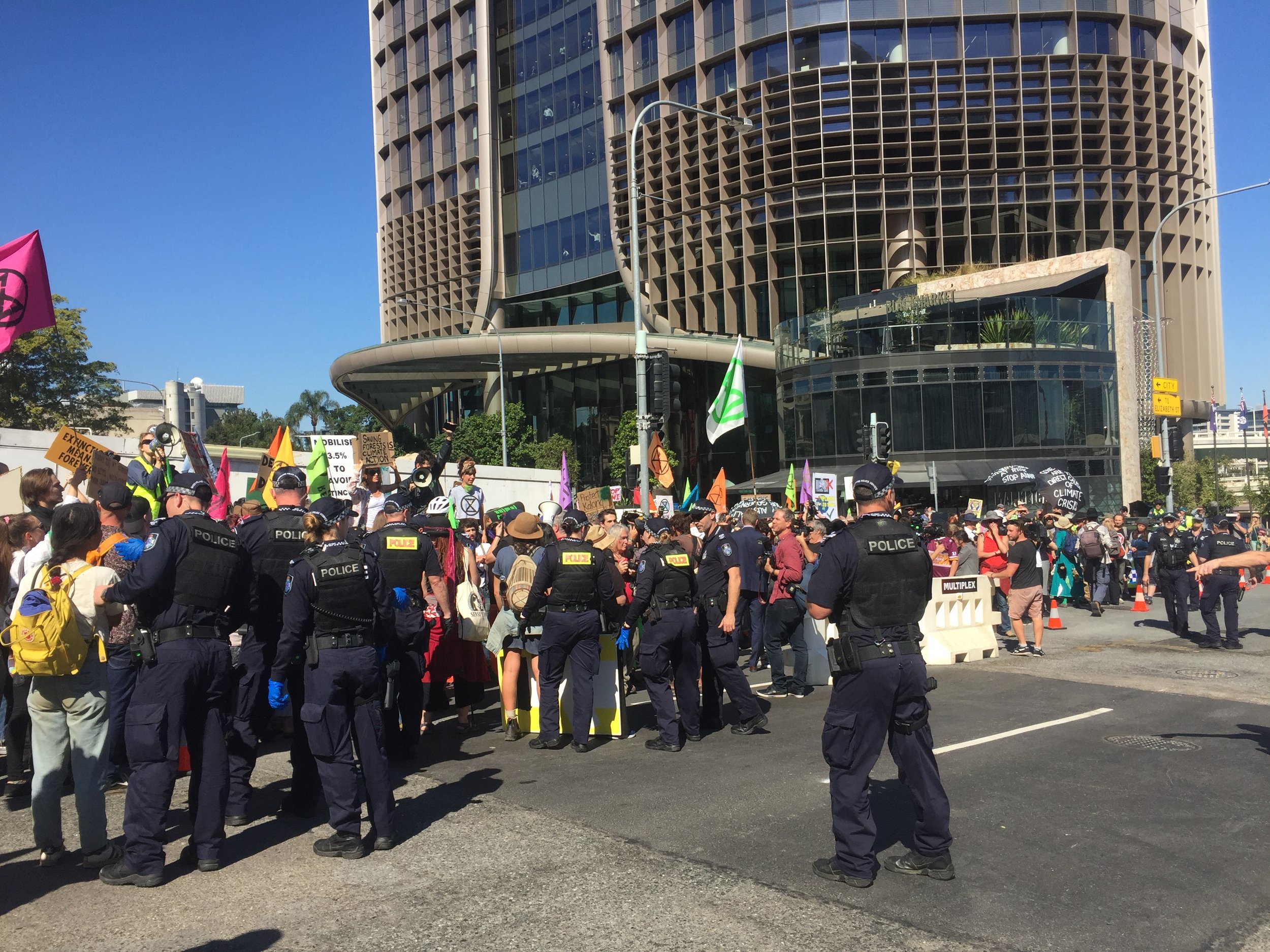
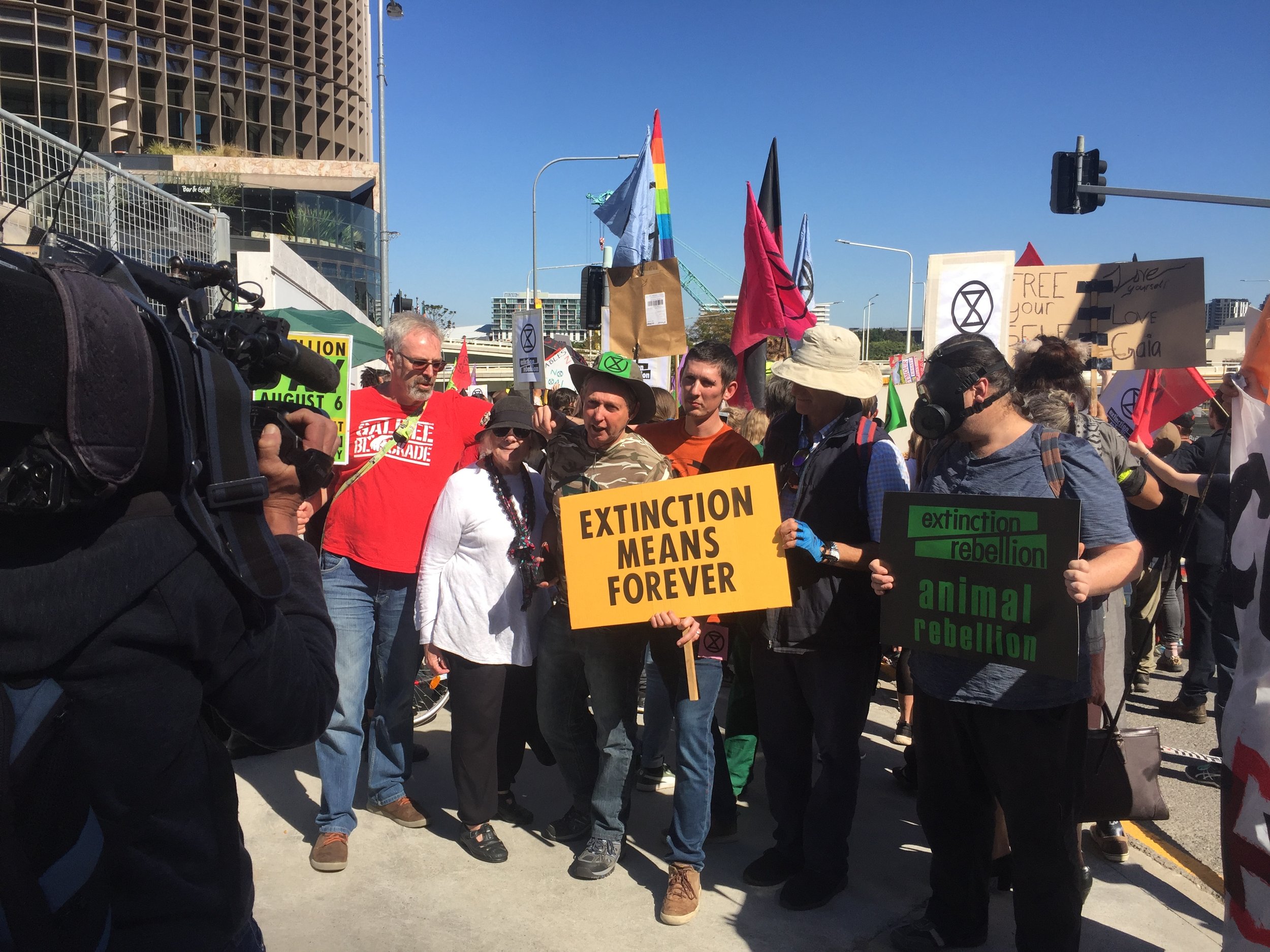

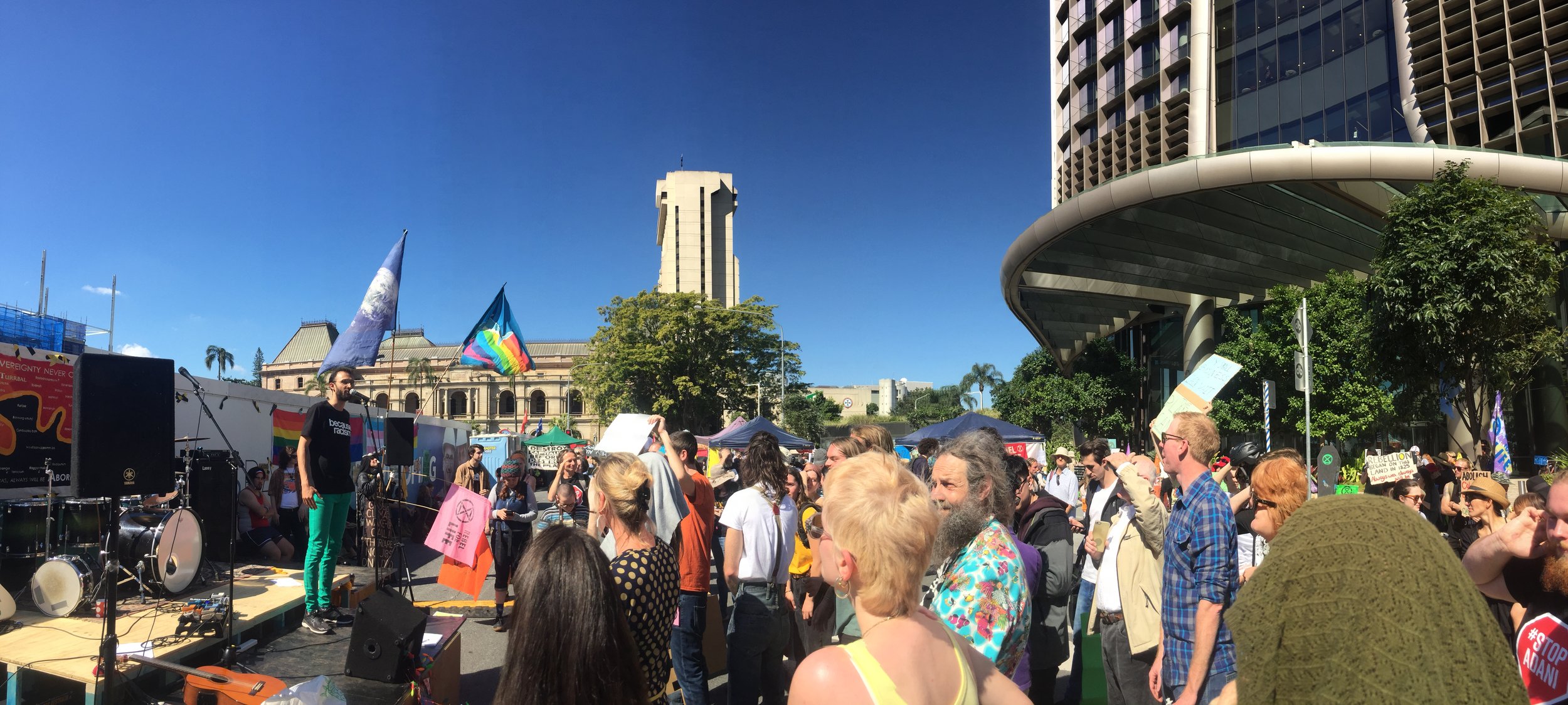
The short-notice protest came on the back of a larger Extinction Rebellion action in the city three weeks earlier, on Tuesday 6th August. On that occasion protestors occupied the street in front of the State Government offices for the morning, as part of a registered public assembly. Drawing inspiration from the global movement that originated in London, the iteration of Extinction Rebellion Brisbane is calling on the City and State governments to declare a climate emergency. More specifically, they build on the well-established ‘Stop Adani’ campaign, an ongoing anti-coal-mining campaign that aims to reverse the decision of the Queensland government to sell mining leases in the Galilee Basin - one of the world’s largest untapped coal seams. So large is the deposit in the Basin that it is estimated burning it will single-handedly release enough CO2 into the atmosphere to tip global sea temperatures beyond the +2 degrees celsius above pre-industrial levels generally regarded as the ‘point of no return’.
Needless to say, this places a fair bit of responsibility in the hands of Queensland’s ninety-three elected MPs.
The atmosphere inside the permitted area was festive, with music, art, spoken word, and food making it feel like something akin to a street party - albeit interwoven with a heavy police presence and rousing political speeches. Two sound systems provided aural stimulation - one, rather aptly mounted on a boat, was provided by the Wonky Queenslander crew, whose electronic beats kept people dancing throughout the morning despite the unseasonal heat. The other came from Councillor Sri’s office - the same used for Roving Conspiracy and other community events.
Meanwhile, in various locations around the city, outside the permitted protest area, activists engaged in more direct civil disobedience. There were 56 arrests - primarily related to traffic disruptions arising from temporary road blockades. Media presence was strong at the event - several reporters interviewed blockaders and other protesters wielding banners and signs. However, rather than asking about the nature and purpose of the protest itself, the lines of questioning were more focused on how and why people could be protesting on a Tuesday… “shouldn’t you be at work?”
This is an unfortunate symptom of Queensland’s mediocre mainstream media coverage, which tends to portray political activism as the preserve of unemployed ‘dole bludgers’, students, fanatics and extremists - certainly not ordinary respectable citizens like the reader. The shame of this reductive and often divisive approach to journalism - a profession that heralds itself as a pillar of liberal democracy - is that it discourages active participation in political life and ultimately glosses over issues of government accountability.
In any case, by 2 o’clock the music had stopped, the protesters had packed up and the road had re-opened. Government workers went for a late lunch. The police filed out reports. The fanatics went back to the drawing board. Business as usual.


